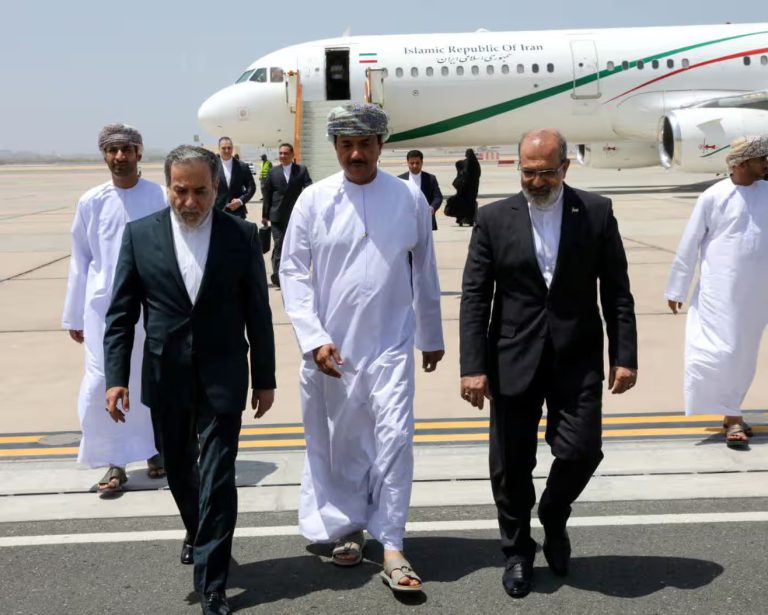Iran Proposes Regional Consortium with Saudi Arabia and UAE to Enrich Uranium
Iran has proposed creating a regional uranium enrichment consortium involving itself, Saudi Arabia, and the United Arab Emirates (UAE), in an effort to address U.S. concerns over its independent nuclear program.
The plan would tie Gulf nations more closely to Tehran’s nuclear ambitions and position them as supporters of Iran’s right to continue enriching uranium. Iranian officials see the proposal as a significant concession, as it would provide Saudi Arabia and the UAE with access to Iranian nuclear technology and a stake in the enrichment process.
It remains unclear whether Iranian Foreign Minister Abbas Araghchi formally presented the idea during brief three-hour talks with the U.S. in Oman on Sunday—marking the fourth round of such discussions—but the concept is reportedly gaining traction in Tehran. Following the talks, Araghchi traveled to Dubai to meet with UAE Foreign Minister Sheikh Abdullah bin Zayed Al Nahyan.
Currently, the UAE does not enrich uranium for its own nuclear program. Instead, it imports fuel for its Barakah nuclear plant, the first operational nuclear facility in the Arab world.
Under the proposed consortium, enrichment would take place in Iran using existing infrastructure but capped at the 3.67% purity level specified in the 2015 nuclear agreement—formally known as the Joint Comprehensive Plan of Action (JCPOA)—which the U.S. unilaterally exited in 2018 under President Donald Trump. The U.S. has since called for a complete halt to Iranian enrichment and the dismantling of its nuclear facilities. However, Trump has indicated he has not made a final decision on the matter and has commended Iran for engaging seriously in the talks.
The consortium model was originally suggested by former Iranian nuclear negotiator Seyed Hossein Mousavian and Princeton physicist Frank von Hippel in a widely circulated October 2023 article in the Bulletin of the Atomic Scientists. The concept envisions Saudi Arabia and the UAE as both financial backers and shareholders, giving them access to Iranian nuclear know-how. Their involvement would also offer additional reassurance that Iran’s nuclear program remains purely civilian, countering longstanding Israeli accusations that Tehran is pursuing nuclear weapons.
Allowing engineers from the Gulf states to work on-site in Iran would add a new layer of transparency, complementing oversight by the International Atomic Energy Agency (IAEA). Iran has gradually exceeded the enrichment and stockpile limits set by the JCPOA, blaming the U.S. withdrawal for its shift in policy.
Iranian Deputy Foreign Minister Majid Takht-Ravanchi has said that Iran is open to temporary restrictions on both the level and volume of enrichment, signaling potential flexibility.
Though the U.S. initially indicated it would seek an agreement within two months of the talks beginning, increasing technical complexity may push negotiations into the summer.
Currently, Iran enriches uranium up to 60% purity—well above the JCPOA’s 3.67% cap and close to the 90% threshold required for weapons-grade material. U.S. Secretary of State Marco Rubio criticized the current enrichment level as far beyond what is needed for civilian use.
Referring indirectly to the Iranian proposal, Oman’s Foreign Minister Badr Al Busaidi spoke of “useful and original ideas reflecting a shared wish to reach an honourable agreement.”
The UAE’s Barakah plant, located west of Abu Dhabi, has all four reactors online and is expected to supply up to 25% of the country’s electricity demand.

